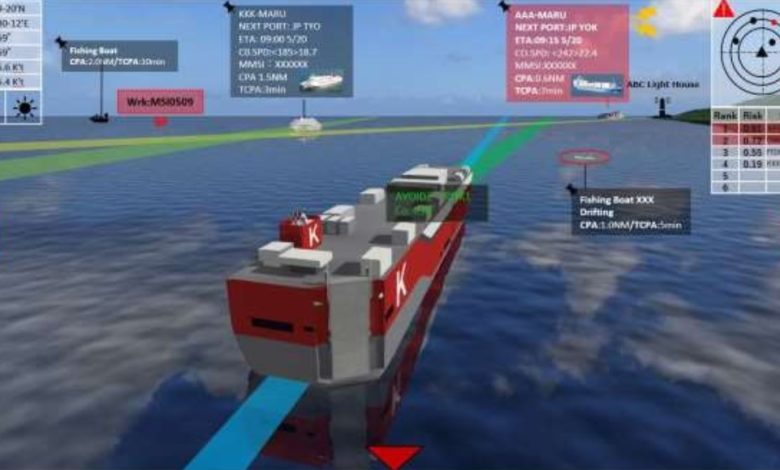K Line rolls out ChatGPT at offices across Japan

Shipowner Kawasaki Kisen Kaisha (K Line) has outlined how it is now using artificial intelligence tool ChatGPT for operations at home in Japan.
Specifically K Line has decided to use AIplicity Chat powered by ChatGPT across K Line offices in Japan based on the Azure OpenAI Service which Microsoft offers on its Azure cloud.
K Line said in a release it decided to introduce this service for several purposes including the streamlining of employees’ operations, encouraging the utilisation of technology, supporting the implementation of duties in a secure environment and “piquing employees’ curiosity and their spirit of trying new things”.
K Line has already been using AI to keep onboard machinery in good order for the last two years. It has also been working to harness AI into navigation systems (pictured) and is one of the companies in the world to have invested the most in developing autonomous tech for ships.
Many in shipping are playing around with ChatGPT at the moment, working out how to integrate the tool into daily operations.
P&O Maritime Logistics, for instance, has recently created an AI Safety Assistant powered by ChatGPT to support team members in health and safety administration.
Freight rate platform Freightos recently carried out a survey on how artificial intelligence could transform the logistics industry.
Logistics professionals overwhelmingly (96%) said they expect to leverage AI – with 14% already using or piloting solutions for pricing or customer service automations, according to the results of the Freightos survey. Over half believe this will change the industry.
“It’s seemingly increasingly clear that there will be little that isn’t touched by AI. Bill Gates recently commented that AI is every bit as significant as the internet or the transistor and it’s difficult to imagine a supply chain organisation without internet being able to compete with one that has it,” commented Freightos CMO Eytan Buchman.
